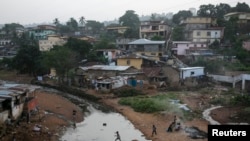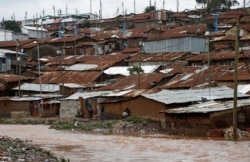Africa is projected to have the fastest population growth in the world over the next 30 years, and the majority of this growth will take place in urban areas. This transition is profoundly transforming the continent.
African urbanization is massive and already a reality on the continent.
According to a new report from a Paris-based policy group, the Sahel and West Africa Club, more than 50% of Africans already live in one of the 7,600 urban areas across the continent.
In the coming decades, existing cities are expected to grow and many new cities to emerge.
Philipp Heinrigs is a senior economist at the Organization for Economic Cooperation Development.
“Urbanization will continue in Africa and current projections indicate that Africa’s population will double between now and 2050,” Heinrigs said. “Two-thirds of this population growth will be absorbed by urban areas, which means that in the next 30 years African cities will be home to an additional 950 million people.”
These demographic trends create many challenges for city officials, who often lack the policies, funds or data to cope with rapid expansion.
Yvonne Aki-Sawyerr is the mayor of Freetown in Sierra Leone.
“The main challenges Freetown faces are the ability to plan its growth and, consequently, the establishment of 68 informal settlements, which people also refer to as slum communities, which represents 35% of our population,” Aki-Sawyerr said. “And also the lack of planning, inadequate infrastructures and sanitation.”
Many activists see this growing urbanization as a tremendous opportunity to rethink African cities, which some say are overrun by cars and pollution, with road safety being a major issue.
Wanjira Mathai is the vice-president and regional director for Africa at the World Resources Institute, based in Nairobi.
“We must begin to think about mass transit. What are the opportunities for buses and non-motorized transit, like bike lanes and simple walk paths?” Mathai said. “Pedestrians in our city is one of the most depressive things. If you just walk around Nairobi, you would find in some paths, very pleasant walk path, and then abruptly they end and you’re walking in the middle of the road competing with trucks and buses.”
The new report said Africa now has 74 urban agglomerations or urban areas with more than one million inhabitants, about the same as the European Union and United States combined.






